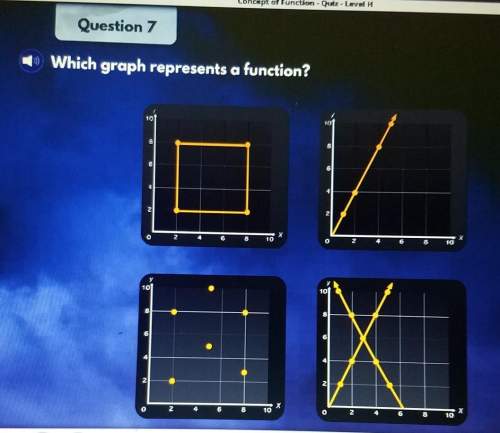
Mathematics, 18.02.2022 07:20 benjamenburton1
25 pts HELP
Find the sum, if it exists, of the infinite geometric series related to the infinite geometric sequence described by a_(n) = 12(0.2)^(n - 1)
This infinite geometric series diverges.
s=15
s=.25
s=9

Answers: 1


Another question on Mathematics

Mathematics, 21.06.2019 20:00
If the simple annual interest rate on a loan is 6, what is the interest rate in percentage per month?
Answers: 1

Mathematics, 21.06.2019 22:00
Find an bif a = {3, 6, 9, 12) and b = {2, 4, 6, 8, 10).
Answers: 1

Mathematics, 22.06.2019 00:20
Given: jk ||lm prove: _2 = 27 statement justification 1. jk ||lm 1. given 2.26 = 27 3.22 = 26 2. 3. 4. _2 = 27 4. corresponding angles theorem transitive property of equality vertical angles theorem substitution property of equality
Answers: 1

Mathematics, 22.06.2019 01:10
If the probability of an event happening is 65% then the probability this event does not occur?
Answers: 1
You know the right answer?
25 pts HELP
Find the sum, if it exists, of the infinite geometric series related to the infinite...
Questions






Mathematics, 15.04.2020 23:08

Mathematics, 15.04.2020 23:08



Computers and Technology, 15.04.2020 23:08

Biology, 15.04.2020 23:08





Mathematics, 15.04.2020 23:08


Mathematics, 15.04.2020 23:08





